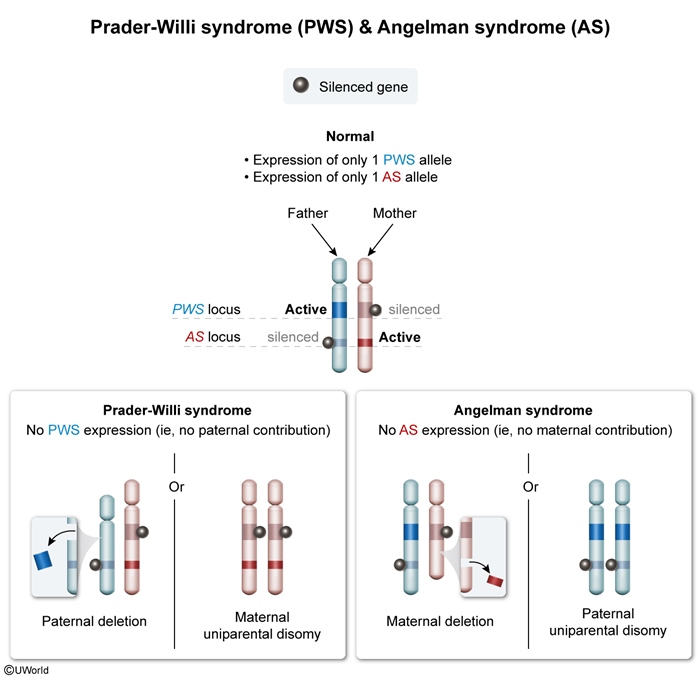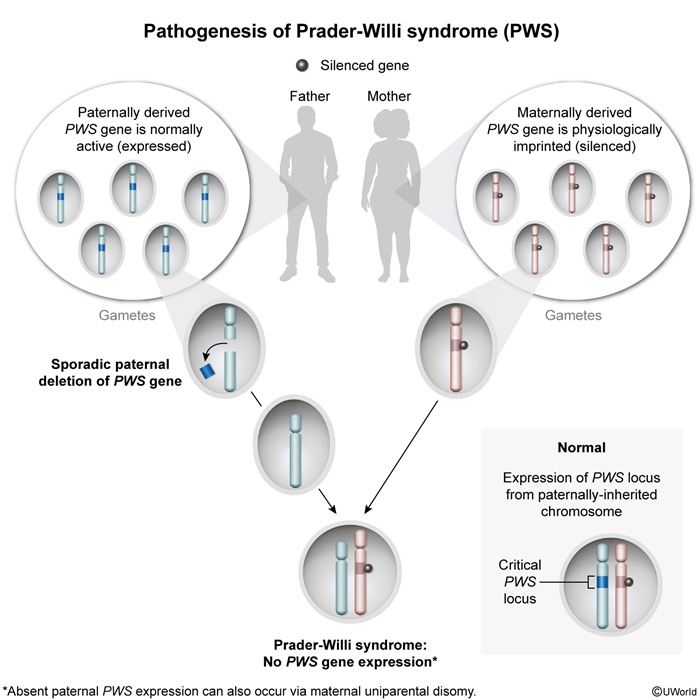Prader-Willi Syndrome And Angelman Syndrome
Article Sections
Introduction
Prader-Willi syndrome (PWS) and Angelman syndrome are distinct neurogenetic disorders that arise from abnormalities affecting the same chromosomal region: 15q11-q13. These conditions are classic examples of genomic imprinting disorders, in which the phenotypic outcome depends on the parent of origin of the genetic material. PWS results from the loss of function of paternally expressed genes in this region, whereas Angelman syndrome arises from the loss of function of maternally expressed genes. Despite originating from the same genomic locus, the 2 disorders present with strikingly different clinical features and developmental trajectories.
Pathophysiology
Normally, imprinting is a physiologic phenomenon in which the expression of a small subset of an offspring's genes depends on the parent contributing the involved gene. For instance, an allele inherited from the mother may be physiologically imprinted (silenced) by methylation so that only the allele from the father is expressed. Disease occurs with absent expression of the normally active allele (ie, no functional gene product).
Continue Learning with UWorld
Get the full Prader-Willi Syndrome And Angelman Syndrome article plus rich visuals, real-world cases, and in-depth insights from medical experts, all available through the UWorld Medical Library.
Unlock Full AccessFigures

